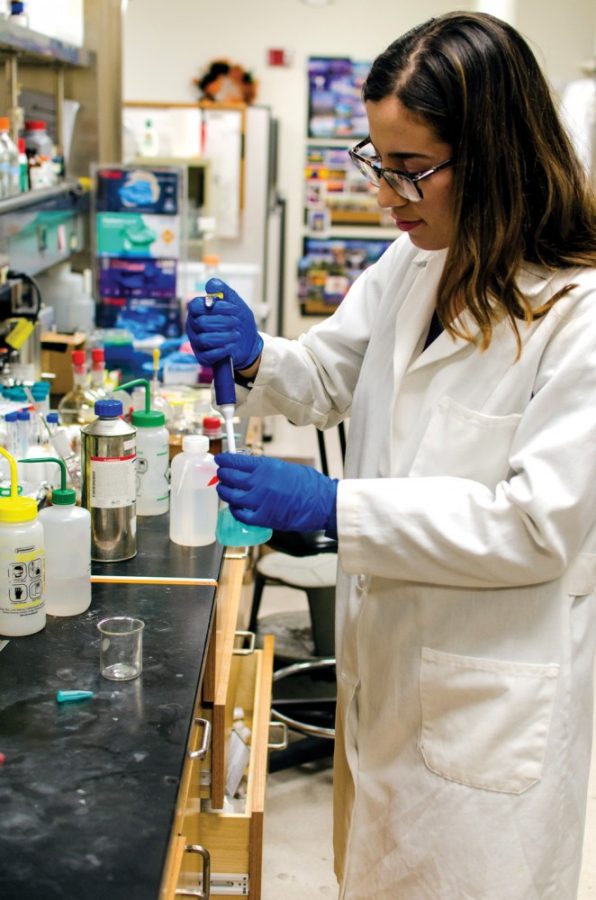Few undergraduates can say they spent their summer conducting research at Stanford with Ph.D.-level biomedical engineers. Only one can say she won a $5,000 scholarship when she got back.
Sandra Gonzalez, a biomedical engineering senior, was awarded the first annual $5,000 Anna Salazar Memorial Engineering Scholarship from SynCardia Systems, a local artificial heart company.
The namesake of the scholarship, Anna Salazar, was a senior quality engineer at SynCardia when she died suddenly, according to Don Isaacs, vice president of communications for SynCardia. The company started the scholarship to support women who go into the field of engineering, Isaacs said.
“It’s really to recognize people like Sandra Gonzalez,” Isaacs said. “We want to help to continue the development of people who make contributions to our society.”
Gonzalez said she felt honored to receive the award from SynCardia.
Gonzalez was raised by a single mother in Phoenix, from whom she receives no financial assistance. Gonzalez used to work to support herself, in addition to the school work and research she did.
“I eventually wasn’t able to do school, research and another job,” Gonzalez said, “so being able to have all that assistance from the scholarship really helped me out.”
Gonzalez continues to do research in her final semester as an undergraduate, and works in the Contrast Agent Molecular Engineering Laboratory. CAMEL is a research group of mostly graduate students that uses contrast agents to spot and study tumors in mice.
Gonzalez also spent this past summer at Stanford University, working with researchers there on alveolar cells in the lungs.
“The day she got back from Stanford, she unpacked and immediately came to the lab and said she wanted to start doing experiments that day. How many people do that?” said Marty Pagel, an associate professor of biomedical engineering and the head of CAMEL.
Pagel is also Gonzalez’s mentor in the Minority Access to Research Careers program, and wrote a letter nominating her for the Anna Salazar Memorial Engineering Scholarship.
Despite her work in multiple areas, Gonzalez expressed interest is in cardiovascular research. She first became interested in the area the summer after her freshman year, when she participated in a lab that worked on cardiovascular disease.
“[The program] showed me how much there is a need for [cardiovascular research],” Gonzalez said. “There are not a lot of people who do research in that area.”
She said her interest in cardiovascular research is why she applied for the scholarship. A bioengineering club she was in had toured SynCardia’s facility. While she was there, she saw the medical devices the company had developed.
“At some point in life I would like to be able to work with devices like that,” Gonzalez said. “Maybe more diagnostic devices more tailored to cardiovascular diseases, something where you could prick your finger and it would show you your risk level, like glucose sensors.”
Gonzalez said she plans to graduate this May and begin graduate school in the fall. She said she hopes to be accepted into the University of California, San Diego, because of its research in cardiovascular engineering devices. Looking further into the future, Gonzalez said she is still unsure of whether she wants to enter academia or industry when she receives her Ph.D.
“At this moment I don’t know that yet,” Gonzalez said, “but I’m hoping the Ph.D. will guide me.”








